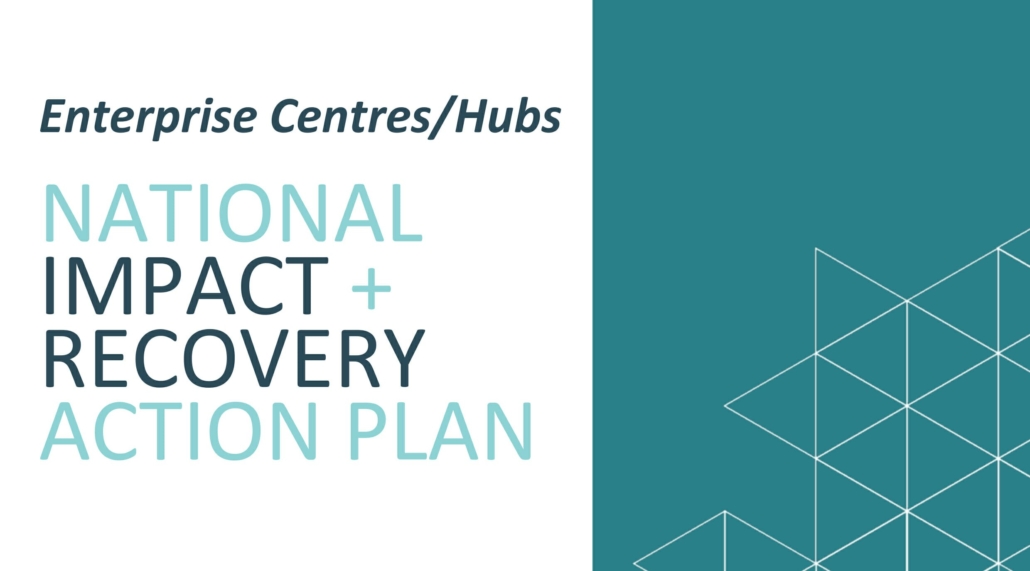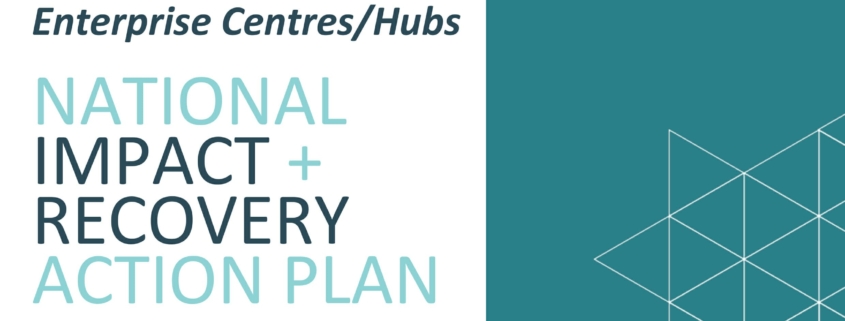New action plan aims to drive recovery

Focus on practical solutions includes resourcing of regional clusters, investment in digitisation and embracing sustainable practices
NACEC has set out an ambitious framework for a post-coronavirus recovery as community enterprise centres around the country begin to reopen following months of prolonged uncertainty.
The association’s National Impact + Recovery Action Plan plots a future that will see enterprise and co-working hubs positioned to provide professional working environments for a new army of remote workers seeking a blended approach to employment in the months and years ahead.
The newly published blueprint follows on from the comprehensive NACEC Impact + Recovery Survey published in May which laid bare the enormous disruption and devastating consequences caused to regional enterprise centres and co-working hubs by the Covid-19 shutdown.
But striking a more positive note, the research also highlighted the many opportunities presented for centres to provide responsive solutions to Irish businesses, large and small, particularly in the area of remote and flexible working.
The country’s enterprise hubs believe they can facilitate not only SME tenants in the future but potentially also large corporate and multinational firms, providing long-term solutions beyond the pandemic for businesses keen to support a more agile and flexible workforce in the years ahead.
The new National Impact + Recovery Action Plan has initiated 14 stimulus actions, grouped under five broad themes, which the association believes can revitalise enterprise centres and hubs, equipping them as changemakers in the new post-Covid world.
Embracing The Blend: The plan calls for dedicated support funding for the creation of enterprise centre cluster networks in each region, reducing duplications of marketing effort and accelerating technology advancement through the co-ordination of regional digitised booking systems.
Skills and talent mapping is considered vital and regional clusters will be encouraged to engage with local authorities, Regional Skills Fora, Enterprise Ireland and regional educators to undertake and update skills and talent mapping.
A think-tank of key players in remote and blended co-working will be brought together to devise policies on future-of-work possibilities and introducing the concept into both public and corporate consciousness.
A major requirement underpinning the entire initiative will be progressing a quality standards framework for enterprise centres in conjunction with the NSAI, Enterprise Ireland and others, resulting in an enterprise hub classification system.
Digitisation: Future-proofing digital capacity for enterprise centres is key to survival. With this in mind, a survey into enterprise centre digitisation and broadband connectivity is to be undertaken which will benchmark centres under headings which include wi-fi access, connectivity and security.
Training facilities and technology will be updated and training offerings digitised through migrating classroom training programmes to blended training programme delivery formats. Furthermore, centres will help overcome the digital divide by providing learning facilities for college students, digital education and training.
Specific opportunities have been highlighted for centres to provide regional pre-acceleration programmes, potentially unlocking the learning from the NDRC running acceleration programmes in the Portershed and Arc Labs.
There is also a role for centres to build on the work of partnerships with the self-employed and social enterprise sector.
Climate Action: The development of a Sustainable Development Goals (SDG) charter is envisaged to which each centre or hub will commit with a view to culture change and prioritising sustainability.
The delivery of an enterprise centre climate change programme is a further goal to mitigate future increases in operating and energy costs. A pilot programme for a cohort of centres will be developed as well as a practical guide for centres to help embed a healthier outlook.
Focus on Clusters: A Cluster Development Plan will be developed for each of the country’s six clusters with enterprise centre representation. The action plan seeks to kickstart building the capacity of clusters focused on regional recovery and trade, increased innovation, knowledge transfer and new value chains.
Financial Stimulus: While individual enterprise centres are struggling to maintain their viability in the face of the disruption caused by the pandemic, they continue to support thousands of entrepreneurs in navigating the crisis.
Enterprise hubs are positioned to provide both leadership and responsive solutions in safe working facilities, blended co-working and remote working facilities, social enterprise solutions and reskilling programmes; however, it is clear there is a need for direct financial supports to underpin survival and growth.
The new €12m fund launched by Enterprise Ireland and the Dept of Business, Enterprise & Innovation to ensure the future viability of the enterprise centre sector is a welcome development. For more information on the fund or to apply please CLICK HERE
Chairperson of NACEC, Gary O’Meara, said the overarching theme of the action plan is to future-proof the enterprise centre sector as it navigates change.
“Across Ireland, enterprise centres and hubs are working hard to devise tangible solutions that will safely and strategically get our centres back to work, and back to what we do best: enabling businesses, creating connected environments for working and co-working and acting as powerhouses of regional enterprise activity and job creation,” he said.
He added that centres and hubs are ideally positioned to provide a new blend of working, dubbed ‘Hub-Home-HQ’.
“For countless businesses, remote working practices will be part of their new normal – and regional hubs are positioned to provide structured, well-connected, professional working environments that are potentially less expensive than the equivalent area of office space.
“But this is not just about space – the creation of regional ecosystems and enterprise clusters that innovate quickly is as vital as premium workspaces,” Mr O’Meara said. “Covid-19 offers a chance to reset and reshape enterprise centres in a more sustainable way.”
Following the publication of May’s survey findings – which showed that almost 88% of centres reported a drop in income of between 21% and 80% and revealed that one-third of centres had seen tenants closing their businesses permanently – NACEC initiated a process of engagement with key stakeholders to focus on practical solutions to drive recovery.
Enterprise Centres / Hubs Covid-19 Impact & Recovery SURVEY – Click Here
Enterprise Centres / Hubs Covid-19 Impact & Recovery ACTION PLAN – Click Here
-ENDS –



